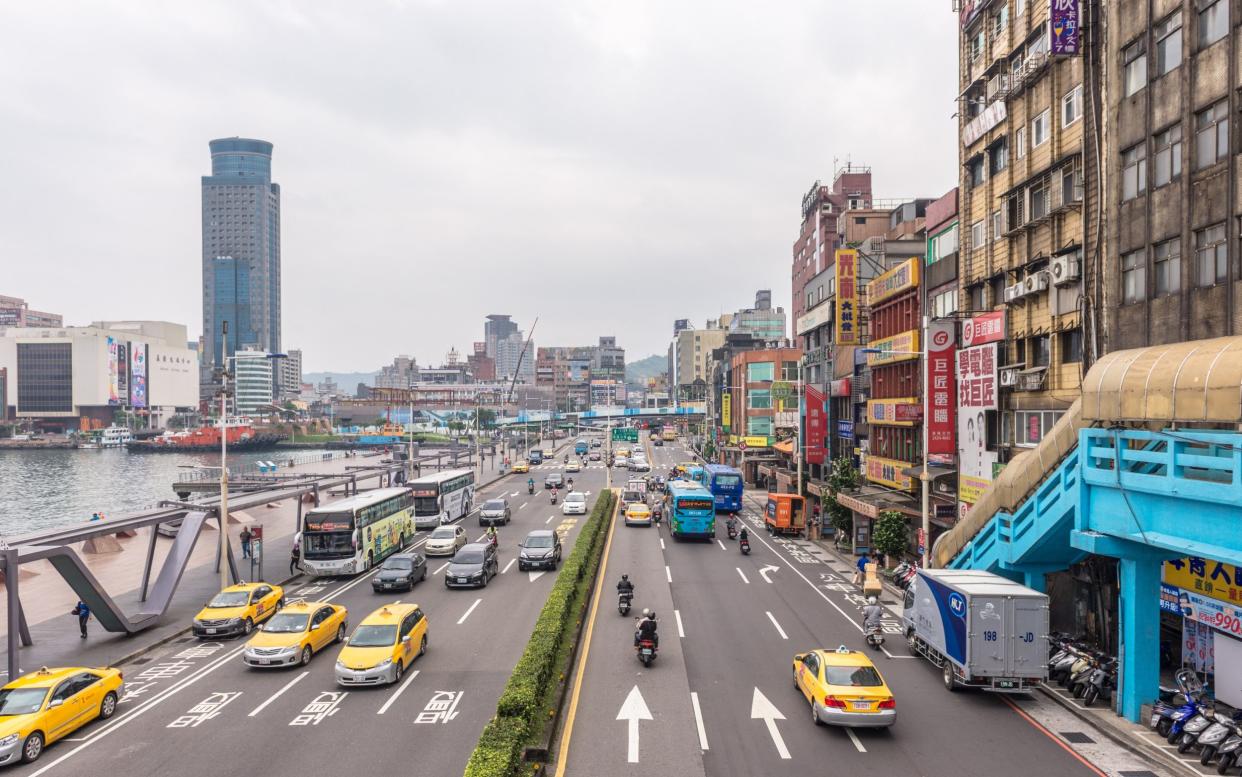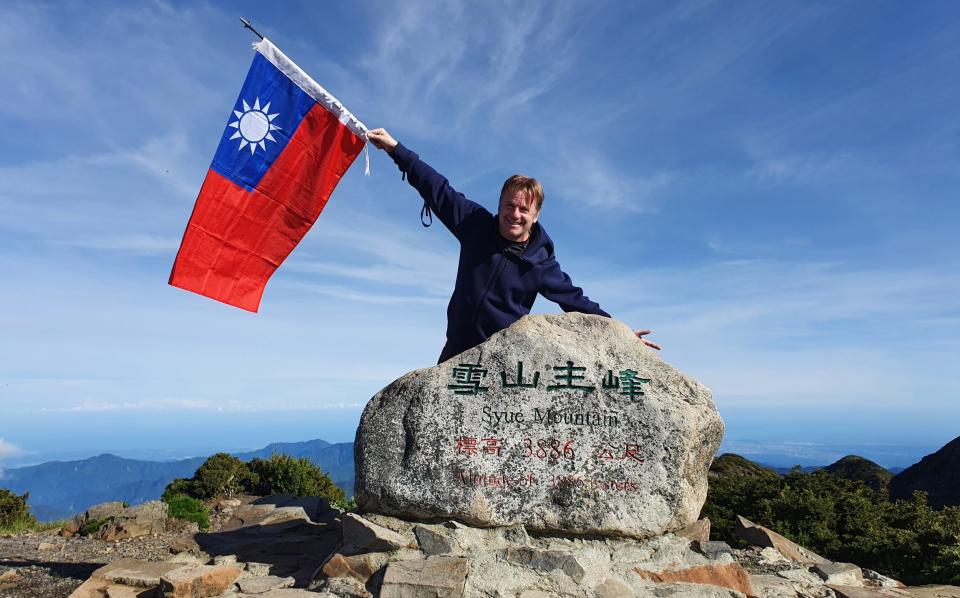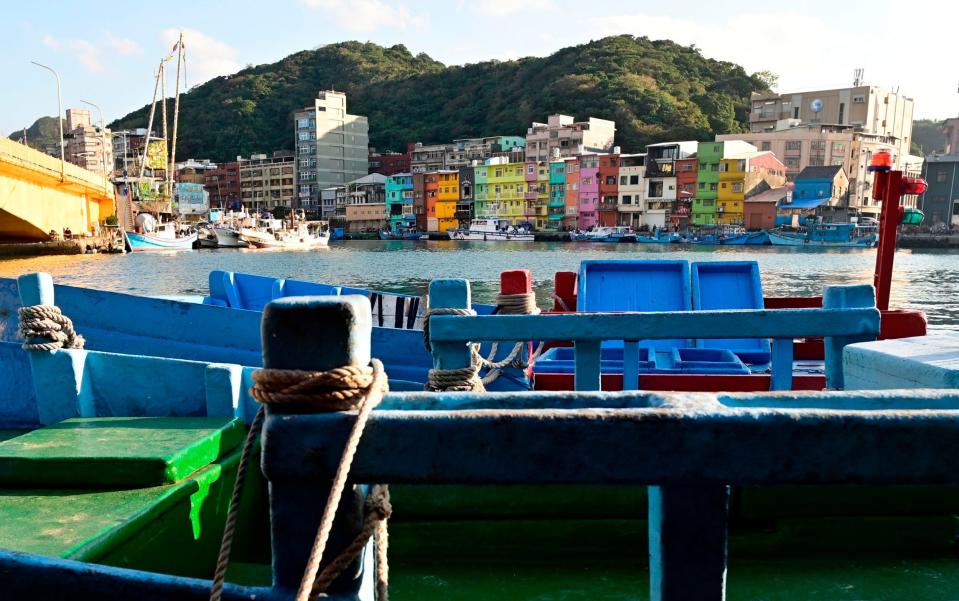The reality of everyday life in a Taiwan under Chinese threat

As a subtropical island used to being rattled by earthquakes, Taiwan has nevertheless been shaken to its core by Nancy Pelosi’s recent whirlwind visit. At least it seems that way, judging by the streams of hot air spurting from keyboard warriors around the globe.
Depending on your sources, the Taiwanese are either now bracing themselves for China’s Mao-wannabe President, Xi Jinping, to launch a full blown military takeover – or basking in the afterglow of the most talked about visit by an American politician (Pelosi being both Speaker of the House of Representatives and a possible second in line to the Presidency) since Newt Gingrich’s less high octane drop-in, over 25 years ago.
But what do the Taiwanese people really think about China’s threats, America’s promises and all the jungly grey areas in between?
As a Brit who has lived in Taipei, Taiwan’s dynamic, scooter-frazzled capital, for a mere two years, and who speaks only rudimentary, tone-jarring Mandarin, I am hardly equipped with enough local savvy to predict Taiwan’s future.
But even as a lowly hack and English teacher, I’ve been lucky to teach Taipei-based students of every age, creed, class and colour, so am often privy to a mind-boggling range of local opinion.
My students are not in denial about China’s post-Pelosi posturing but they are not running for the hills either. They are fully aware of the People’s Liberation Army’s wildly accelerated naval expansion, invasion drills and regular sorties by fighter jets into Taiwan’s Air Defence Identification Zone – the latter costing the island’s military millions each year, as it needs to scramble its own jets to monitor the PLA’s.
And yet, despite all the recent “World War III is nigh” headlines plaguing the internet, one of the most popular memes of the last days with my students in Taipei shows two contrasting tableaux.
The first is called “Taiwan, According to Social Media IN Taiwan”, and depicts lots of pictures of mountain scenery, happy hikers, beaches, pineapples (the world’s best) and teeming night markets. In graphic contrast the second: “Taiwan, According to Social Media OUTSIDE Taiwan”, shows Pelosi and Xi, warships, jets, mushroom clouds and soldiers brandishing rocket launchers.

To the majority of Taiwanese, it remains the everyday stuff that matters: family, friends, jobs, jokes and pride in their country’s natural beauty, its buzzing cities, sound health system and splendid food (especially stinky tofu, a much loved street delicacy that honks like weapons-grade Stilton, and is always offered with relish to a grimacing English teacher).
“We’ve been living with the threat of China invading for decades now,” shrugs Sandy, a rangy, very smart ex-student of mine, who is now training to be a pilot. “We are used to it.” And, he adds, “Taiwan is over 80 miles out to sea [from China], and rough sea, too. It’s a cliff-fringed, mountainous island with very little accessible coastline to launch a large scale invasion and with today’s advanced radar…” he taps his forehead knowingly. “You’d be able to see the landing craft from miles away. It’s not like Hong Kong.”
Chinese bloody Taipei, what does it even mean?
It certainly isn’t. One of my students, Annie, has, like a surge of Hong Kongers recently, moved from her home city to the relative freedom of Taipei. She used to always attend the vigil, held every June 4 in Hong Kong’s Victoria Park, to remember those who lost their lives in the Tiananmen Square massacre in 1989. “I was one of over 100,000 people,” she tells me, remembering the last vigil she attended in 2016. “We sang songs and held up lighters and candles. So moving.” She shrugs. “This year there was no one, not a soul. It’s as if Tiananmen has been written out of China’s history. Taiwan is like a new hope for many Hong Kongers.”
Annie mentions that she recently went to see the film Maverick, a sequel to Tom Cruise’s 1986 blockbuster Top Gun. In the old film, Cruise wears a jacket sporting the Taiwanese flag on his back. During pre-Covid publicity for Maverick, images appeared of Cruise’s jacket with the Taiwanese flag erased so as not to jeopardise the film’s potential success in China. But when the film finally came out this year, the original Taiwanese flag was still in place.
“I gave a little cheer when I saw the flag,” says Annie, animated at the memory. “So did some of the cinema audience. It made me so happy. It’s a disgrace Taiwan cannot wave its own flag at the Olympics and has to go under the name Chinese Taipei! Pah! Chinese bloody Taipei, what does it even mean?!”
Taiwan’s future remains uncertain. It is only officially recognised by 13 countries worldwide, most of them tiny or remote – Guatemala, Paraguay, Haiti, The Holy See – that Taiwan has helped financially, and which Beijing now wants to woo back in a bid to dilute Taiwan’s global standing. America and Europe, though considering Taiwan an ally and offering financial support, stop short of fully acknowledging it to avoid sparking a major conflict with China. It should be remembered that more than 400,000 Taiwanese still live and work on the mainland, too. A strange status quo prevails.
Taiwan 'wants to forge its own destiny'
Earlier this year, a fascinating feature on the TV show John Oliver Tonight revealed that in extensive polls carried out on the Taiwanese population, a tiny 1.5 per cent want unification with China, and around 6 per cent favour full Taiwanese independence. The lion’s share, however, are content to continue with the status quo, including Tsai Ing-wen, Taiwan’s calmly defiant president, who already describes her country as independent, but without the need to legally rubber stamp this.
When I first came to Taiwan I could not understand this seemingly insipid status quo. Now I’ve lived in Taipei for two years, I do completely. The Taiwanese neither want to be enveloped by the grim, restrictive clutches of Beijing; nor do they want to be manipulated like a useful pawn in the sometimes egotistical power games of grandstanding Western politicians. It wants to forge its own destiny.
Indeed, since Portuguese sailors spotted the island back in the 1600s and dubbed it Formosa (Beautiful), it has survived many transformations. Apart from the longstanding indigenous communities who have been Taiwan’s most consistent presence, it has seen the Dutch, Spanish, Chinese (but not the Chinese communists), Japanese and Americans all holding sway at different times.

Under the name Republic of China, Taiwan survived the post-World War II dictatorship of the now discredited Kuomintang leader Chiang Kai-shek, who fled to the country after being defeated by Mao’s forces in 1949. It was Chiang’s less authoritarian, more popular son, Chaing Ching-kuo, who paved the way for the end of martial law and sparked the current lively democracy (fist fights have been known to break out within the Taiwanese Parliament) that has existed since 1987.
Several years ago, I taught English at a university in Beijing. I liked my students, who came from all over China. But, asked to judge a speech writing contest about China’s future, I ended up listening to well over a hundred mind-numbing speeches, near-identical in zeal and content, all praising Xi Jinping to the roof tops. It was possibly the least exciting day of my life – and I’m a Sheffield Wednesday supporter. My attempts to explain that in the West we frequently poke fun at our leaders – I showed an orange Donald Trump, his hair whipped into a Mohican by the wind, and an affectionate cartoon of the Queen puffing on a cigarette and dressed like Del Boy Trotter – brought only nervous laughter.
My Taiwanese students, by contrast, have proved unafraid to air their opinions. Some have been delighted by Nancy Pelosi’s visit, admire her courage and the fact that she, unlike some of the more bandwagon-jumping politicians, has always spoken up for the underdog. Others think she’s a disgrace, plagued by corruption scandals and purely visiting Taiwan on an ego trip in the twilight of her career with no care for the mayhem she has unleashed.
Whatever their views, long may my students feel free to speak their minds. Sure, there are many things that infuriate me about the country – the flow of scooters buzzing around Taipei, 24-7 like deranged hornets; the requirement to wear a mask outside even in the sweltering summer heat; the fact that all Taiwanese love taking photos of every meal they eat. But Taiwan is an island of fortitude. Long may the people of this beautiful place get to decide on their own futures.


